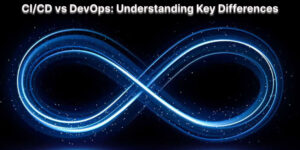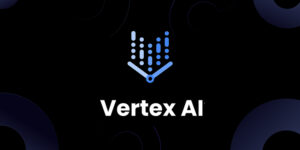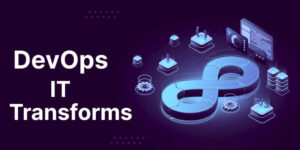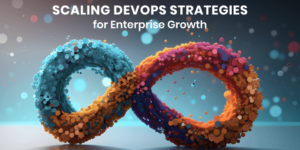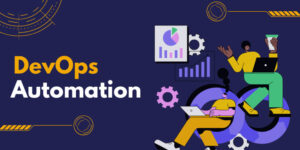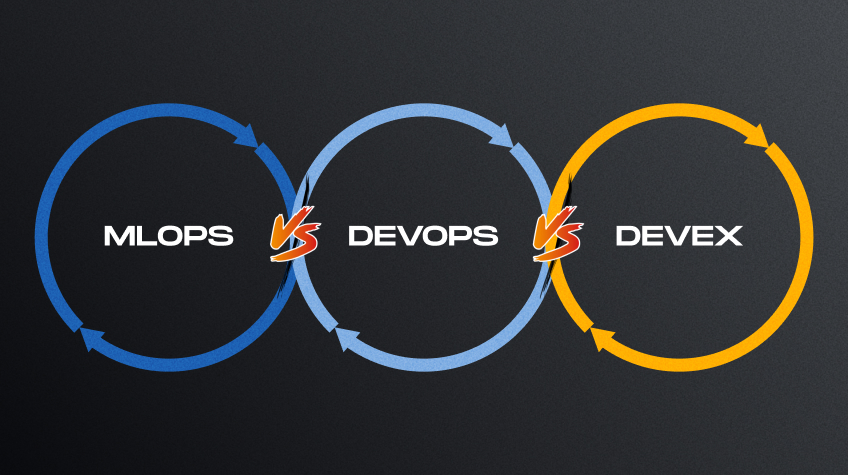
MLOps, DevOps and DevEx are related but not the same terms, the terms reflect the complexity built into the development lifecycle they address. MLOps is a special subset of DevOps, focusing particularly on streamlining machine learning model deployment and monitoring.
DevOps, on the other hand, is more of a practice that aims at unifying development and operations so that continuous integration and continuous delivery (CI/CD) is ensured within software systems.
DevEx, though not directly associated with deployment, is being talked about a lot nowadays as it talks about optimization of the experience of the developers themselves, ensuring productivity and smooth workflows.
In this article, we are going to discuss the definitions, core principles, main tools and practical applications of MLOps, DevOps and DevEx with their characteristics and overlapping features in contemporary development environments.
What is MLOps?
It is a collective term that refers to all the activities incorporated by machine learning system development and operations in its best practices. The term refers to the capacity to automate and streamline the entire life cycle of a model – from developing and deploying that model to its continuous monitoring and governance.
MlOps addresses the gap existing between data science and operation teams as the models get completely merged into products and put into production. Teamwork, Automated Model Deployment, Version Control, Model-based CI/CD Processes and Good Monitoring and Feedback in MLOps are the important principles.
➢ Some Key Tools and Technologies of MLOps
Tools and technologies associated with MLOps usually aim to simplify machine learning workflows. A few popular tools are…
- MLflow (for managing ML models and experiments)
- Kubeflow (for orchestrating machine learning pipelines on Kubernetes)
- lakeFS (used for managing big data lakes)
- DVC (Data Version Control) (for versioning datasets and models)
- Perfect (used for monitoring, coordinating and orchestrating operations across applications)
What is DevOps?
DevOps stands for development operations and refers to a cultural, as well as a technical movement, to improve the cooperation between teams that are responsible for the development of software applications and IT operations. The central goal of DevOps is the automation of software development, testing and deployment, which then provides a highly agile and efficient process.
In practice, it aims to shorten the periods for the development cycles and, at the same time, to increase the number of deployments that depend on continuous integration, continuous delivery, infrastructure as code (IaC) and monitoring, thereby improving the quality and reliability of applications. Companies in general use DevOps services to help them implement these processes as smoothly, rapidly and easily as possible into their workflows.
➢ Key Tools and Practices of DevOps
DevOps uses numerous tools to make workflows streamlined, automate repetitive tasks and deploy software efficiently. Key DevOps tools include…
- Jenkins (for automation of CI/CD pipelines)
- Docker (for containerizing applications)
- Kubernetes (for orchestrating containerized applications)
- Prometheus (for monitoring and alerting)
- GitLab (for source code management and CI/CD)
- Splunk (for Deployment & Server Monitoring)
What is DevEx?
DevEx or Developer Experience, can be defined as a compilation of common practices that optimize the way a developer experiences a well-oiled work environment. Simply put, having everything productive, enjoyable and smooth about work life. This includes everything a developer interacts with: the tools or processes he uses to work, the workflows he follows and the cultural organization.
Therefore a well-built DevEx strategy becomes critical in a developer’s improvement with productivity at work, satisfaction and performance as a whole. Thus it emphasizes frictionless development processes, intuitive tools and empowered environments under which developers are free to optimize their coding: writing more high-quality code.
➢ Key Elements of DevEX
- Tooling (providing developers with powerful and user-friendly tools)
- Automation (automating repetitive tasks and simplifying workflows)
- Collaboration (encouraging teamwork and communication across teams)
- Environment (creating a supportive and conducive work environment)
- Feedback (offering continuous feedback and support to developers)
Key Differences Between MLOps, DevOps and DevEx
1. Purpose and Goals
MLOps is about managing and automating the lifecycle of the machine learning models, ensuring smooth models, smooth deployment, monitoring and collaboration between data scientists and operational teams.
DevOps automates the entire software development and deployment process, thus decreasing lead time to market while improving operational efficiency.
DevEx improves the daily developer experience to enhance their productivity and efficiency by giving them the right tools and removing blockers.
2. Processes and Workflows
MLOps workflow comprises data collection, model training, model validation, deployment, monitoring and continuous improvement. It unites data scientists and developers together in a collaborative effort.
DevOps is a successful process whereby continuous integration, testing, deployment and monitoring occur for any software application. It integrates development and operations to make the software delivery lifecycle an admirable experience.
DevEx workflow centers around optimizing the environment in which developers work, ensuring that tools and processes are well-integrated, intuitive and efficient.
3. Key Stakeholders
MLOps stakeholders are data scientists, machine learning engineers, IT operations and DevOps teams.
DevOps teams are developers, operations teams, quality assurance engineers and IT staff.
DevEx stakeholders have developers, product managers, team leads and human resources.
4. Tooling and Ecosystems
MLOps depends on bespoke tools for the management of pipelines, versioning models and deploying models (Kubeflow, MLflow).
DevOps uses the following tools in the automation of CI/CD, containerization and infrastructure management (Jenkins, Docker, Kubernetes).
DevEx relies on tools that would ease the development workflows of code editors, task managers and collaboration platforms such as Visual Studio Code and GitHub.
When to Use What?
MLOps is applied in a situation involving machine learning models that must be frequently updated, deployed and monitored in production. It is most appropriate for teams that are integrating data science and operational deployment workflows.
DevOps is necessary whenever you need to automate and integrate software development and IT operations so that rapid delivery of software and continuous improvement can be made. It applies to any organization focused on maintaining production-quality applications.
DevEx should be used by organizations looking to improve developer satisfaction and productivity. It is important in those cases where development teams are blocked by bottlenecks, limitations in tools or inefficient workflows that affect performance and morale.
Real-World Examples
MLOps is used by companies such as Netflix and Airbnb to manage and deploy machine learning models at scale. This means algorithms for recommendations and pricing are continually refined and integrated into their production systems.
DevOps examples are Amazon, Google and Facebook which have been using DevOps practices to enhance the deployment of their applications and services at scale with high availability and reliability.
DevEx is used in GitHub and it provides a seamless experience to its users so that developers can collaborate and share their code in an efficient way to build software.
Also Read: Difference Between DevOps and DevSecOps
Conclusion
MLOps, DevOps and DevEx all aim to improve the software development and deployment processes but focus on different aspects. MLOps is a must for organizations using machine learning at scale, while DevOps is a necessity for teams looking to streamline development and operations.
DevEx is the key to optimizing the developer’s experience and productivity. By understanding the differences and how they are interrelated, organizations can select the most appropriate approach to accelerate their software development lifecycle and work collaboratively with efficiency.

